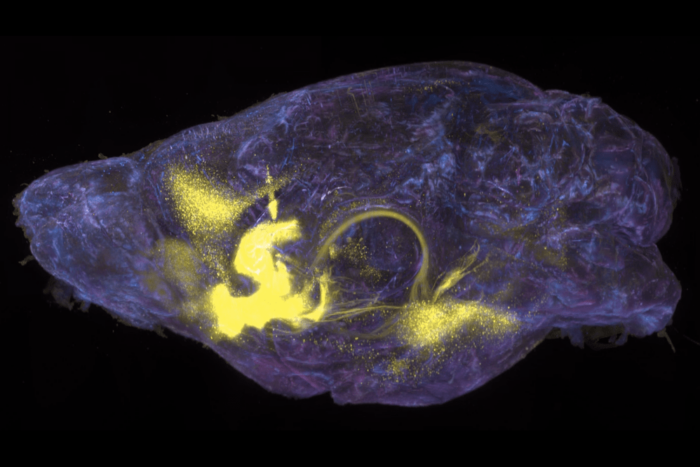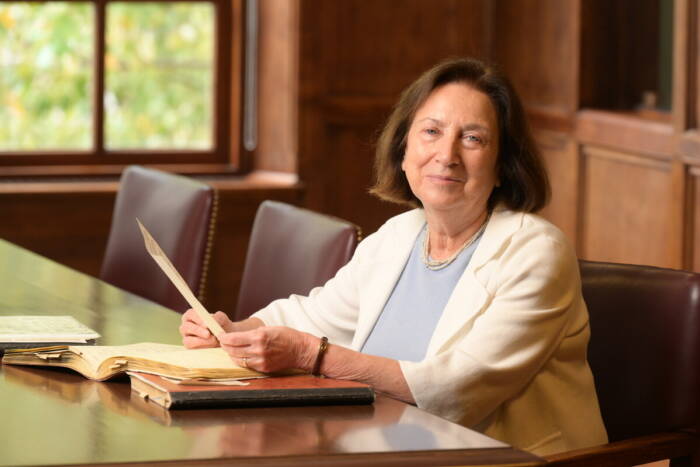Don’t miss these stories about Rockefeller and our scientists
by Eva Kiesler, managing editor

Jim Zirin (left) with Marc Tessier-Lavigne on Conversations in the Digital Age, a talk show that hosts high-profile guests from the worlds of politics, law, business, and other areas.
In a recent episode of the CUNY TV talk show Conversations in the Digital Age, host Jim Zirin conducts a 30-minute interview with Rockefeller University President Marc Tessier-Lavigne about the university—which Mr. Zirin refers to as an “amazing institution” and “a New York gem”—and what’s new in bioscience at large.
During the conversation, which spans Rockefeller’s present, past, and future, Dr. Tessier-Lavigne shares some of his favorite anecdotes about transformative breakthroughs led by our scientists along with his vision for the ongoing construction of the Stavros Niarchos Foundation—David Rockefeller River Campus and his enthusiasm for the present-day “Golden Age of biomedical research,” which he describes as “an explosion of knowledge of fundamental mechanisms, an explosion of our ability to take that knowledge and develop therapies and cures for poorly treated diseases.”
You can watch the interview on the cable channel’s website and also when it airs on Sunday, January 17, at 8.30 a.m.
In a recent story in The Atlantic, science journalist Ed Yong writes about neuroscientist Leslie Vosshall and her efforts to study the behavior of mosquitos. The ultimate goal of the research is to develop more-effective strategies to prevent mosquito-borne diseases, but “we shouldn’t be playing around with making repellents yet,” says Dr. Vosshall. “We need to figure out what [the insects are] doing before we figure out how to intervene.”
Also, be sure to read last month’s Scientific American tribute to neuroscientist and Nobel laureate Paul Greengard on his 90th birthday. Dr. Greengard, who is as active as ever conducting research into diseases such as Alzheimer’s, depression, and Parkinson, has no plans to wind down his work. “I have a wonderful group of younger colleagues and there are always extremely exciting things happening in the lab,” he says.


